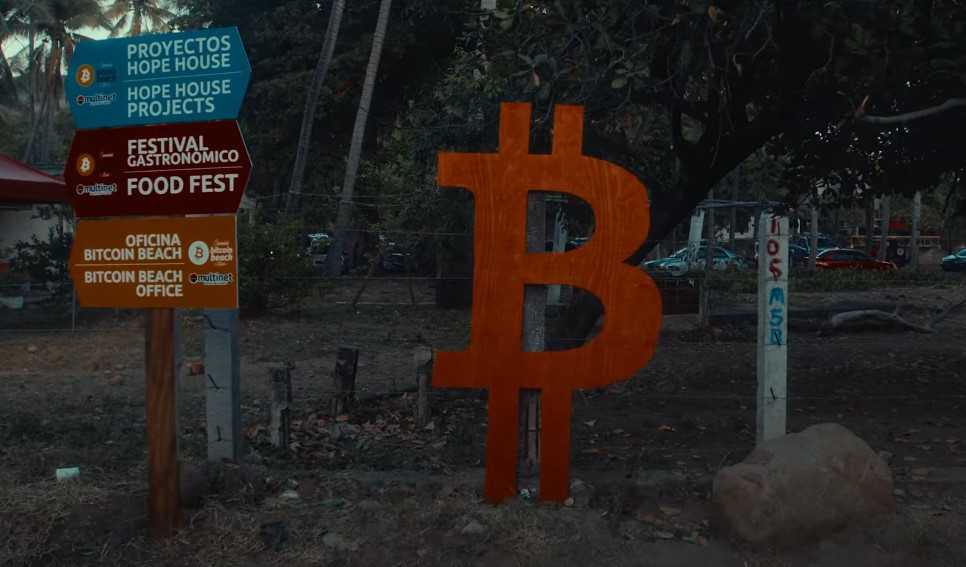Spanish-speaking Bitcoiner talk about what they have learned with Bitcoin.
The feature film explores the origin, technology and challenges of Bitcoin in the region.
Bitcoin is undoubtedly a revolution and is marking a profound milestone in Latin America and Spain, as witnessed by Spanish-speaking bitcoiners who express what they value most about this digital currency in the first documentary in Spanish about the crypto asset, released yesterday on YouTube.
Over the course of one hour and 20 minutes, the documentary Bitcoin Revolution explores the transformative potential of digital money, created by the enigmatic figure of Satoshi Nakamoto. And in the voices of protagonists from the region, it details the origin of the crypto asset, unravels the complexity of its technology, while inviting us to reflect on its economic impact and the regulatory challenges it faces.
In that sense, the audiovisual material is positioned as an educational and provocative story, exploring how the pioneering digital currency is redefining the concept of money and the financial structure in the digital age.
The documentary that premiered in June in Madrid movie theaters is now available for everyone to enjoy on YouTube. It stands out from other Bitcoin productions by offering a local and regional look at what’s happening with this peer-to-peer digital cash exchange system.
This is how the founder of the NGO Bitcoin Argentina, Rodolfo Andragnes, says that he experienced the corralito crisis in his country, he clearly remembers how the inability to access his own money brought a series of financial obstacles to his life. «I lived the corralito. We couldn’t access the money we had. We are experiencing the devaluation of the active currency. We went from one peso to one dollar, then from one dollar to four pesos and finally from one dollar to 200 pesos,” he explains.
Furthermore, Andragnes describes moments of government restriction that limited money extraction and transfers abroad. For Andragnes, these experiences reveal a clear abuse, both in the imposed measures and in the practice of issuance, which he recognizes as an act of manipulation of fiat money.
Based on his experiences, Andragnes explains how Bitcoin solves problems of access and control over personal money. And like him, financial education entrepreneur Juan Pablo Zuluaga of Colombia criticizes the traditional financial system, initiated with Nixon’s decoupling of the dollar from gold in 1971, as a mechanism that allows states to print currency at their discretion.
That is why Mexican businessman Ricardo Salinas Pliego spoke of the US dollar as the “biggest fraud in the world” due to its uncontrolled emission, which according to him, strips citizens of their wealth.
The biggest fraud in the world is the North American dollar because people do not realize that the monetary issue in the United States is enormous. It is even worse dispossession of wealth that the monetary authorities, both in Mexico and the United States, have done to the citizens, since the monetary issue is a tremendous fraud.
Ricardo Salinas Pliego, owner of Banco Azteca.

Stories of Hispanic bitcoiners that inspired a documentary
For his part, Spanish economist Gael Sánchez Smith also spoke about the manipulation of money by central banks and how this led to the formation of economic bubbles. He praises Bitcoin for offering a decentralized alternative, free from state control and big banking, underlining its potential to avoid financial crises like that of 2008.
While the Spanish lawyer Cristina Carrascosa highlights the strategy of using established norms to make a financial revolution possible. For her, that is what makes Bitcoin able to operate within the legal framework to challenge the current system without being directly attacked. And in that same order of ideas.
Argentine entrepreneurs Diego Gutiérrez Zaldívar and Gabriel Kurman talk about how Bitcoin has enabled the return to a digitized barter economy, where value is exchanged directly between individuals without intermediaries, promoting a more inclusive economy and less subject to abuses of power.
Other interviewees are Lunaticoin, podcaster and content creator about Bitcoin; the Mexican educator Lorena Ortiz, the bitcoiner Juan Rodríguez from Colombia and the industry leader in the region Arley Lozano. Likewise, projects such as La Bitcoineta, born in Argentina, stand out; Bitcoin Embassy Bar, from Mexico, and the bitcoiner movement that emerged in El Zonte, which served as inspiration for El Salvador to emerge as the first country in the world to classify bitcoin as legal tender.
The feature film also gave rise to detractors. “I protest to the apostles of Bitcoin because it gives the impression that they only see the benefits,” says one of the testimonies. “It often gives the feeling, and I don’t want to generalize, that it is purely speculation. And that the objective is not so much to change society, but to literally get rich,” they point out.
In short, “Bitcoin Revolution” stands out for collecting several experiences of Latin Americans and Spaniards with the digital currency. As CriptoNoticias reported, there are other films about Bitcoin, but of Anglo-Saxon or European production.






Leave a Reply